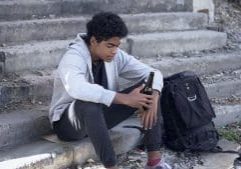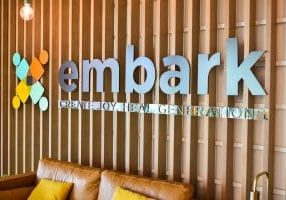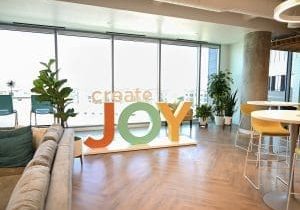Behavioral Health and Mental Health Treatment
Embark Behavioral Health is one of the leading behavioral health and mental health treatment providers in the United States. Comprised of 19 therapeutic programs and schools across the U.S., Embark offers behavioral and mental health support to struggling pre-teens, teens and young adults, as well as their families.
Learn more from Embark about behavioral health disorders, mental health services and the types of treatment available to those families combating mental illnesses and related issues.
What Is Behavioral Healthcare?
According to the Substance Abuse and Mental Health Services Administration (SAMHSA), a U.S. Department of Health and Human Services branch, behavioral healthcare is the “promotion of mental health, resilience and well-being.”
The term “behavioral healthcare” can also be expanded to mean the “treatment of mental health problems and substance use disorders,” as well as the “support of those who experience and/or are in recovery from these conditions, along with their families,” SAMHSA states.
Behavioral and mental health care services have become more prominent in the U.S. in the last decade, with the National Institutes of Health (NIH) estimating that close to one-third of the American population has experienced some form of impairment due to a behavioral healthcare issue or psychiatric condition, in any one year.
As if the estimates from the NIH were not already alarming enough, these levels of behavioral health conditions and issues have continued to rise to historic numbers in the U.S. in recent years as well.
With behavioral and mental health coming to the forefront of the news in 2020 due to the recent coronavirus (COVID-19) pandemic, behavioral healthcare providers like Embark have been confronted with both a challenge and an opportunity to reverse these distressing mental healthcare trends.
This is precisely why Embark and its family of therapeutic programs and schools for adolescents, has dedicated itself to the mission of reversing anxiety, depression and suicide by 2028.
What Types of Behavioral Health Services Are Available in the U.S.?
Though more than 44 million members of the U.S. adult population are estimated to be living with a behavioral or mental health issue, only 40% are seeking treatment, and that number is even less for teenagers, young adults and their families.
Many young people may, unfortunately, not be aware of how to begin to seek help or of which types of behavioral healthcare services are accessible to themselves.
Other adolescents and their families may struggle with affordable and/or timely access to behavioral health programs.
There are, however, a multitude of behavioral and mental health services and treatments available for young adults in the U.S., which include:
Which Conditions Will Behavioral Healthcare Programs Treat?
Behavioral and mental healthcare services can treat multiple conditions and benefit adolescents and young adults with a variety of disorders, including:
- ADHD
- Anger issues
- Anxiety disorder
- Bipolar disorder
- Depression
- Drug use or substance abuse
- Eating disorders
- Gaming addiction
- Obsessive-compulsive disorder
- Panic disorders
- Post-traumatic stress disorder
- Self-harm
- Suicidal ideation
According to the American Psychological Association (APA), 75% of people who participate in a behavioral healthcare program or receive mental health services, report receiving benefits from the health system, which could include everything from addiction treatment to substance abuse prevention, to suicide prevention.
When you first begin a behavioral health program search, it’s important to speak with your family's primary care physician, who will first look into any possible behavioral issues, mental health conditions, mental health disorders or any other symptoms being exhibited by your child. Then, he or she may refer you to a counselor, therapist or treatment program.
It will be helpful to do as much research as you can ahead of time into these conditions and symptoms, to determine which provider and/or type of mental health service are right for you and your family, as there are usually many various options.
How to Find a Behavioral or Mental Health Therapist
- Ask family, friends, a community health or primary care physician for a recommendation.
- Focus on the condition that needs to be treated and the behavioral health treatment program or mental health therapist’s specialty.
- Determine if the service or therapist’s treatment is covered by insurance or if private payment is needed.
- Meet with the program and/or therapist to see if your child feels comfortable speaking with them (it may take speaking with multiple individuals before you find the right service or treatment plan for your daughter or son).
- Additionally, when searching for a mental health services provider, do not feel limited by one program or therapist.
Other behavioral healthcare providers that can assist you and your family in your search for a mental health center or care, can include:
- Counselors
- Social workers
- Psychiatrists
- Psychologists
Ways to Find a Behavioral Health Program Near You
Recent Blogs & Tips
Embark has helped teenagers and their families find the right behavioral health program and treatment options to live a happier and productive life, nationwide.
We offer preteens, teenagers and young adults specialized treatment services through 19 of our mental health programs and schools, which are located across the U.S., and include:
- Calo Programs: The first two residential treatment programs focused on adopted preteens and teens. Calo Programs implements a true relational-based treatment approach to create change from the inside out – heart first and behavior second – and are located in Lake Ozark, Missouri.
- Chrysalis: A therapeutic boarding school for preteen and teen girls, Chrysalis removes distractions and allows a girl to heal, find her inner strengths and discover the best way to share those strengths with others. Chrysalis offers girls unique, life-affirming adventures, in Eureka, Montana.
- The Forge School: The Forge School brings healing and joy to teenage boys and young men through extraordinary adventure, exceptional education and mindfulness. Teen boys are challenged to connect and heal on the vast 55-acre school property in Benton, Tennessee.
- Fulshear Treatment to Transition: A residential treatment and transitional living program that enables teens and young adult women to become healthy, influential and strong. Young women can build on their life skills at Fulshear by learning more ways to overcome the struggles that inhibit women from having the life they want for themselves, in both Needville and Stafford, Texas.
- Lake House Academy: A therapeutic boarding school for preteen and teen girls, Lake House helps girls find confidence, healing and resiliency through a healthy, home-like environment and play in Flat Rock, North Carolina.
- New Haven: A boarding school and residential treatment center for teen girls that facilitates healing through an emphatic focus on family. Teenage girls can heal their wounds at New Haven through a comforting, home-like environment, returning home more connected to family and prepared for the rest of her life. New Haven has locations in Saratoga Springs and Spanish Fork, Utah.
- Optimum Performance Institute: OPI Programs offer young adults effective, innovative and therapeutic treatment to support them as they navigate through life's critical challenges. OPI focuses on giving young adults both the clinical and life-skills support they need to thrive, in Woodland Hills, California.
- Embark Behavioral Health: A full continuum of behavioral healthcare for teens and young adults who are struggling with mental health challenges and/or substance abuse issues and substance use disorders across the U.S. Potomac offers services within a young adult's community and accepts most forms of health insurance. Potomac has locations in: Atlanta, Boston, Chicago, New York, Philadelphia, San Francisco, Utah Valley, Utah, and Washington D.C., as well as offers virtual support to families.
- Sunrise Residential Treatment Center: A residential treatment center for teen girls that is the leading dialectical behavioral therapy (DBT) program in the nation. Teenage girls and their families can heal as a teen learns to excel in school, regulate emotions and successfully manage day-to-day life with increased independence, in St. George, Utah.
If you would like to learn more about one of our programs for your child, please call us, request more information about insurance verification or have one of our Admissions Specialists contact you here.










